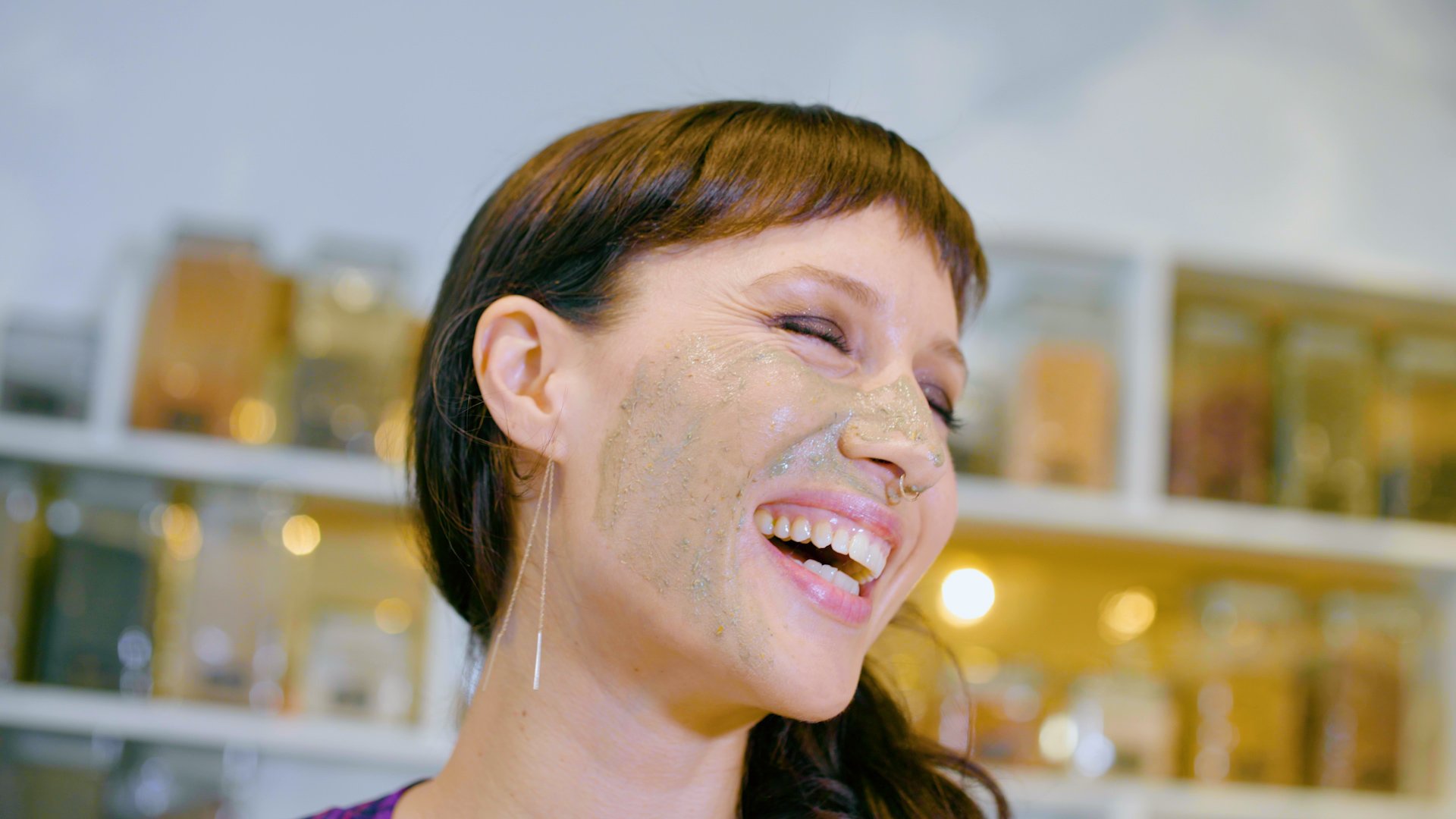The Skinny on Skin Immunity | Delicious Living
Skin, the body’s largest organ, stands on the frontlines defending against invaders—bacteria, viruses, and other harmful microorganisms—that can compromise our overall immune health.
This time of year, the weather, plus those oft unavoidable bouts of cold and flu, can take a toll on our skin’s healthful glow. Fortunately, you can become an adversary and help your skin batten down the hatches this fall and winter.
Winter woes
Moisture loss intensifies during colder seasons. Assisted by falling temperatures, low humidity, and harsh winds, the winter air literally sucks the moisture from our skin! These drying, chapping, and chafing effects may even continue when we step inside to warm up in the dry, indoor heat or an extra hot shower.
Registered clinical herbalist and founder of Pharmakon Supernatural, Rachelle Robinett likens it to a home’s creaking doors and floorboards. Over time, dry conditions and moisture loss cause wood to shrink and shrivel. “Imagine what our skin barrier and water-based mucous membranes are going through,” she says.
If we do happen to pick up a viral infection, our skin also pays the price. Cold and flu symptoms that have a direct, negative affect on skin health include inflammation, stress, and lack of sleep. Even certain medications, like antihistamines, have drying effects.
If not tended to, skin can become flaky, cracked, and inflamed—and those pesky pathogens we mentioned before, well, they’re just itching to get in! Fortunately, there are strategies to strengthen the skin’s defenses.
Itching to scratch?
Don’t. Scratching dry skin can lead to tiny tears or open wounds which immediately compromise the skin’s integrity, giving pathogens an opening to invade the skin’s deeper layers, leaving us more vulnerable to infections and disease.
Skin care: on the surface
You may already have a skincare routine to keep your skin looking its best. But the good news is, the right skin care may also help you feel your best by offering your immune system a helping hand.
Exfoliate
Extra-fine-particle scrubs work great, but Robinett suggests dry brushing. “If you want healthy, fresh, glowing skin, it’s crucial to remove the dead stuff,” she says. According to Robinett, dry brushing can increase circulation and stimulate the lymphatic system, part of the immune system.
Tone
“Astringents pucker the pores, which keeps the skin hydrated by preventing moisture loss and reduces absorption of environmental pollutants,” says Robinett. She recommends a plant-based toner such as rose petal or witch hazel.
Moisturize
Nothing new, right? Here’s why it’s so important: Research shows that moisturizers hydrate the epidermis, help repair and restore the skin barrier, and improve skin elasticity.
Robinett’s go-to moisturizer? Jojoba oil. “I love it,” she says. “It’s plant-based so it’s literally one ingredient. It absorbs well because, compared to other oils, it’s the most structurally similar to our skin’s natural sebum.” She also gives a thumbs-up to algae-based skincare products, which contain ingredients such as brown seaweed which absorbs and retains moisture better than hyaluronic acid.
Support skin from the inside out
To support skin health and immunity from the inside, Robinett shares some of her favorite natural herbs and supplements.
Seeds
Burdock seed and the extract of milk thistle seeds can relieve dry, scaly, and itchy skin. These natural ingredient superstars have essential nutrients that support skin health, says Robinett. She adds that combining burdock seed, milk thistle, and omega-3 fatty acids packs a powerful immune health punch.
Mucilants
Mucilants, what Robinett calls “slippery slimy plants,” are known to fight inflammation—a common trigger for skin issues. Of particular note is marshmallow root. Used for centuries to soothe and reduce mucosal inflammation and treat chapped skin, marshmallow is available in capsule, tincture, and tea form. Aloe vera is another example of a mucilaginous plant that is well known for its role in healing and promoting healthy skin.
Herbal teas
Evoking the medicinal properties of herbal teas is another ancient practice still used today. More specifically, Robinett looks to a category of plants called vulneraries to support skin health and immunity.
Calendula—classically used as a topical treatment for irritated or damaged skin—has powerful antioxidant and anti-inflammatory properties, both of which are integral for healthy skin. To get those benefits from the inside out, try curling up with some calendula tea.
Natural nasal decongestants
The pressure is building. You’re about to blow. That’s good. We’ll wait. Now that you’ve cleared the way, try these natural nasal decongestant remedies.
Add essential oils to a facial steam. Try peppermint, tea tree, rosemary, or sage.
Try a shower steamer infused with eucalyptus.
Enjoy a steaming mug of ginger, peppermint, or thyme tea.
Get back that glow
Does your skin feel tight or look dull, red, or flaky? Do you have dark under-eye circles or puffiness? All signs that your skin needs a little TLC. Robinett offers some tips on getting back your glow.
| What to do | What it does |
| hydrate both inside and out | liquids replenish lost moisture; moisturizers prevent moisture loss |
| run a humidifier | reduces moisture lost to evaporation from the skin |
| supplement with omega-3s (e.g., fish oil, algae oil) | fatty acids may enhance the skin’s natural barrier |
| exercise | better blood circulation can beef up immunity and revitalize the skin |


